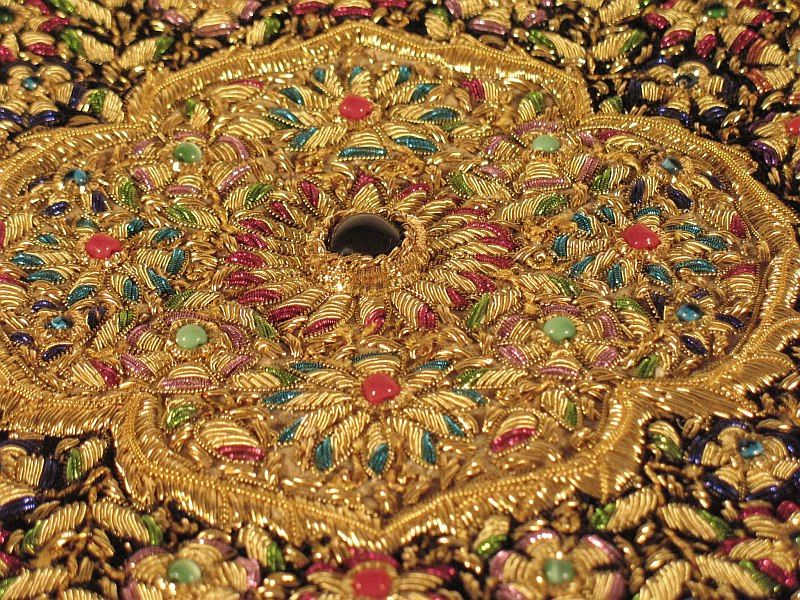===
0144,
5
===

=== |
 |
lāg : 'Harmonious relation; affinity; correlation; bearing; appositeness, adaptedness (of time, or place, or of means with an end, or of appearances with a fact or truth, &c.); relevancy; consistency, concurrence, correspondence, reciprocal suitableness or agreeableness; (in Math.) ratio; —attachment, affection, love; —an application, or a direction (of the mind), aiming; aim; attention; exertion, endeavour, attempt; —touching, reaching, attaining (to), approach; cost, expenditure; —hitting, striking; fixing; —an attack of ill-fortune, a calamitous occurrence, a blow, stroke; enmity, animosity, hostility, rancour, spite, grudge; rivalry, competition; —narcotic quality (of a substance); —intrigue, plot; a secret; —trick, legerdemain, sleight of hand, jugglery; a charm, spell, fascination; —catch, hold, support, basis, ground; a prop'. (Platts p.946)
maʿrakah : 'A place, or scene, of battle or fight; field of battle; battle-ground; an ampitheatre (for gladiators or prize-fighters); —strife, fight'. (Platts p.1048)
FWP:
SETS == MULTIVALENT WORDS ( lāg )
MOTIFS == 'DEAD LOVER SPEAKS'; SWORD
NAMES
TERMS == WORDPLAYHow could there be a richer example of a multivalent word than that lāg in the first line? I've reproduced Platts's whole definition above, just in order to savor it. Is there a single one of those possibilities that couldn't be imagined, in one way or another, as existing between the beloved's sword and the lover? SRF focuses on the two biggest and most obviously apposite (and opposite) ones, but I don't see why the rest shouldn't be enjoyed as well. For another such splendidly multivalent use of lāg , see
{1768,4}.
And gale se milnā too -- it's quite normally and legitimately translated as 'to embrace', but it literally means 'to meet with the neck', which of course is spectacularly well suited to the idea of 'embracing' a sword. Intriguingly, we used to have a related expression in English that can be found in the King James Bible, as for example in Genesis 45:14:
'And he fell upon his brother Benjamin's neck, and wept; and Benjamin wept upon his neck.'
To 'fall on the neck of' someone seems to be a particularly passionate, surrendering, almost helpless kind of embrace; and it gives a further fillip to the idea of gale se milnā .
Moreover, whose 'passion' was it that caused this deadly embrace? That of the lover? That of the sword? Or was it some semi-personified 'Passion' itself that arranged the encounter? Needless to say, we're left to decide for ourselves.
Compare Ghalib's own brilliant use of wordplay to evoke the wild emotion felt by (or at least attributed to) the sword:
G{1,3}.